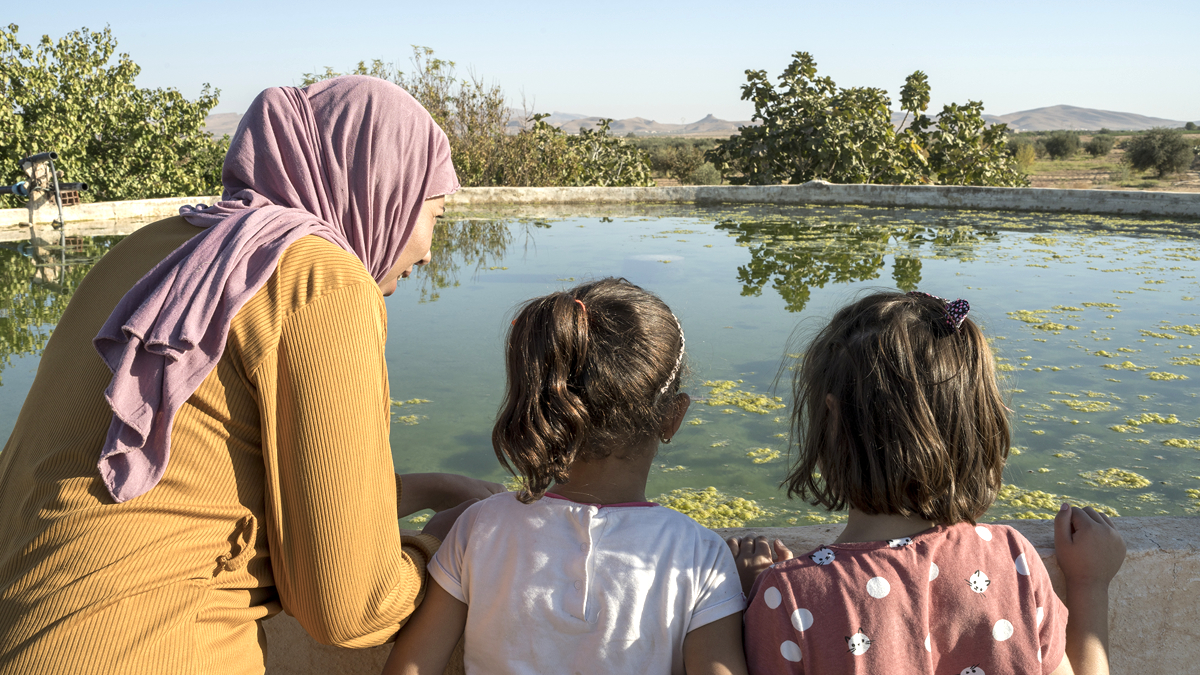UN Women and Arab Water Council release a ground-breaking study on gender, climate, and migration: Urgent call for inclusive policies ahead of COP28
Date:
[Joint Press Release]

(CAIRO, 26 November 2023) – Climate crises have disproportionately large impacts on women and girls. Climate change exacerbates pre-existing gender inequalities, such as rising rates of poverty, food and water, unequal access to land and natural resources, lack of participation in decision-making and the unequal distribution of care work.
Women and girls make up 80 per cent of the global population that have been displaced due to climate-related disasters. According to the World Bank, climate conditions are estimated to account for 10-20 per cent of current migration flows in the region – a significant proportion of this are women and girls.
UN Women, in partnership with the Arab Water Council, undertook a study entitled ‘Gender and Climate-related Migration in Jordan and Sudan: Building Women’s Economic and Social Resilience to Climate Risk and Migration for Survival within Sustainable Development’. Focusing on Jordan and Sudan as key case studies, the study explores the interconnections between climate change, disasters and migration from a gender equality and women’s empowerment perspective.
The study highlights the gendered impacts of climate risks and crises on different categories of women, including low-skilled migrant women, examining as it does the intersections between gender and other forms of marginalization. Moreover, it also highlights women’s front-line responses to climate crises and climate-resilient development. It also highlights the treatment of gender, climate change and migration as harmonized policy agendas to ensure coherent and amplified impact.
The study calls for incorporating the priorities of different categories of women including migrant women into all climate, migration, agricultural, urban and humanitarian policies, strategies and programmes. This must be based on consultation with affected women who are represented on these policy design and implementation mechanisms. The resulting policies, strategies and programmes should include gender-responsive targets, indicators and budgets.
Ahead of COP28, UN Women and the Arab Water Council will be holding an official launch of the publication on 26 November 2023 from 10am to 12:40pm (Cairo time). The registration link to this virtual launch can be found here.
For media inquiries:
(English) Montira Narkvichien, UN Women Arab States | montira.narkvichien[at]unwomen.org
(Arabic) Ahmed Zaki Osman, UN Women Arab States | ahmed.zaki.osman[at]unwomen.org
Media key messages:
- Climate variations have disproportionate gender impacts on women because of prior gender inequalities.
- Climate variations adversely impact some women more because gender interacts with women’s other marginalized identities.
- Women are frontline responders in climate crises.
- 10 to 20 per cent of migration in the Arab region is because of climate related factors.
- Women’s knowledge, experience and skills must inform climate adaptation/mitigation and migration/displacement strategies.
- Treat gender, climate change, migration and displacement in harmonized ways in policy design and implementation.
- Ensure that the climate priorities of different groups of women, including migrant women inform climate policies.
- Ensure that the climate and migration priorities of all categories of migrant women inform migration and displacement priorities.
- Ensure a 30 per cent gender benchmark for gender equality and women’s rights-based climate initiatives.
- Invest in scalable women-led community initiatives on building women’s resilience to climate resilience and migration for survival.
About UN Women
UN Women is the United Nations entity dedicated to gender equality and the empowerment of women. A global champion for women and girls, UN Women was established to accelerate progress on meeting their needs worldwide.
About Arab Water Council
The Arab Water Council mission is to promote deeper understanding and better management of the water resources in the Arab states in a multi-disciplinary, non-political, professional and scientific approach, to disseminate knowledge and enhance sharing of experiences and to achieve integrated water resources management for sustainable development and good water governance for the benefit of the Arab people.